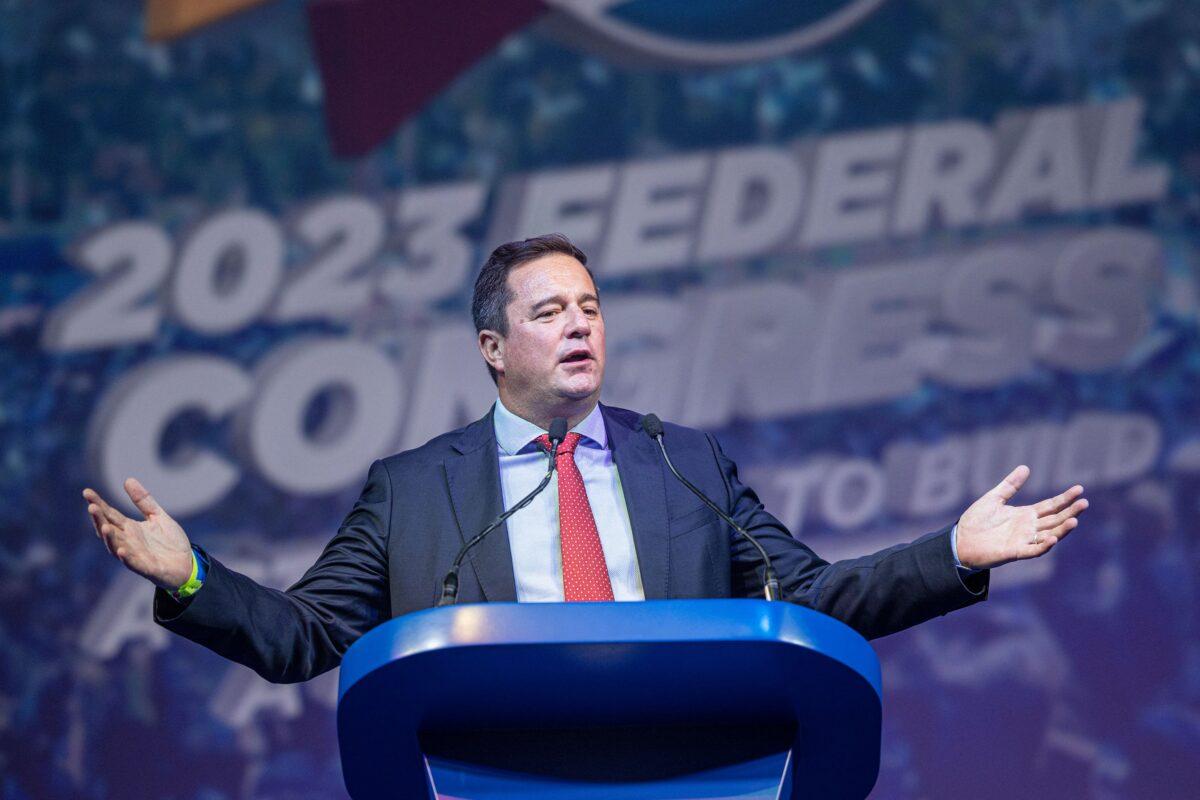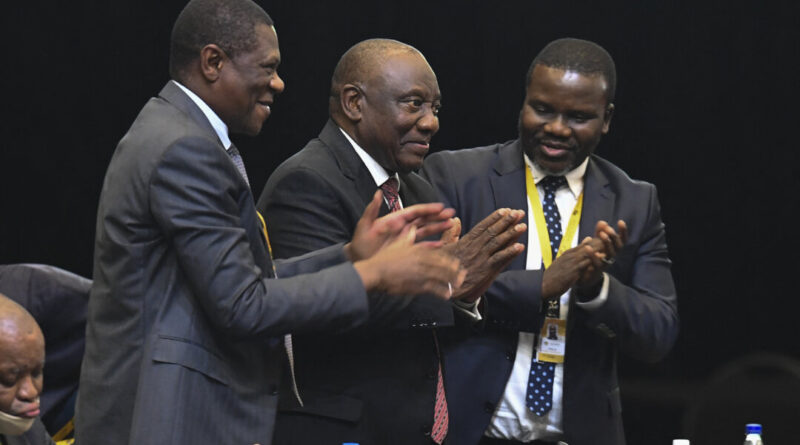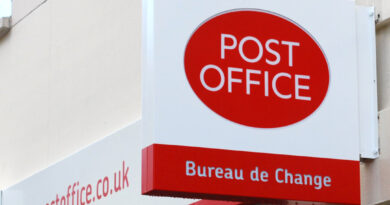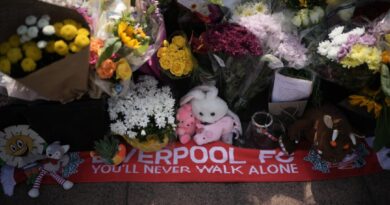Questions Arise About How South Africa’s New 7-Party Coalition Government Will Govern
Africa’s largest and most industrialized economy has a new national executive, with members holding vastly different policy positions.
JOHANNESBURG—South Africa has formed a cabinet after a month of political maneuvering following a highly contested election.
The African National Congress (ANC) had to create a coalition government after receiving only 40 percent of the vote in the May 29 election, losing the majority it had held since the end of apartheid in 1994.
As a result, the ANC’s ability to pass legislation will be significantly limited in the future.
Cyril Ramaphosa, the leader of the ANC, who retained his role as president with the support of South Africa’s second-largest party, the Democratic Alliance (DA), has appointed one of the largest national executive teams globally on June 30. This move was necessary to allocate leadership positions in various sectors of the economy and society to seven of the 11 parties in the Government of National Unity (GNU) in South Africa.
Veteran opposition politician Athol Trollip, a leader of the Action SA party, which is not part of the GNU, expressed concerns about the extensive cabinet, stating that it would be expensive to operate in a relatively small country like South Africa.
Like many South Africans, Mr. Trollip is concerned governance will be disorderly, with too many people making decisions and setting policy direction.
There’s rampant violent crime, with an average of 84 people murdered every day; the world’s highest unemployment rate of almost 35 percent; desperate poverty; infrastructure decay that’s crippled services at ports and railways; corruption; electricity blackouts; water outages and crumbling education and health sectors.

In a speech to the nation on June 30, Mr. Ramaphosa confirmed the ANC had given several key ministries to the DA.
“All parties have made a commitment to respect the constitution and to promote accountable and transparent governance, evidence-based policies and decision-making, the professionalization of our public service based on integrity and good governance.
“The incoming government will prioritize rapid, inclusive, and sustainable economic growth and the creation of a more just society by tackling poverty and inequality,” said Mr. Ramaphosa.
The DA considers the ANC leader’s commitment to “professionalizing” the public service as a major win.
It has often accused the ANC of giving management positions at state-owned enterprises to party loyalists, instead of to people with the requisite skills, resulting in service delivery failures.
DA leader, John Steenhuisen, told The Epoch Times his party’s 12 cabinet positions mean it now has “meaningful influence” to set South Africa on a path of recovery.
“We now have footholds in the country’s economics cluster, which is integral to what we want to achieve,” he said.
“We’ll use our influential cabinet seats in agriculture, public works and infrastructure, forestry, fisheries, and the environment, as well as our deputy minister roles in finance, trade and industry, and small business development, to pursue a rapid growth and job creation agenda.”
In Mr. Ramaphosa’s new cabinet, the DA also controls basic education, communications, and home affairs.
Mr. Steenhuisen said the DA also has “watchdog” deputy ministers in important sectors including energy and electricity, water, and higher education.
“The DA will build on our experience of improving service delivery,” he said. “We were never in this for positions for their own sake, which is why we refused to accept watered-down compromises and why we drove a hard bargain at times to ensure the portfolios we got were of real substance.
“We’re also pleased the negotiations reaffirmed that any suspicious tenders could be investigated and that senior civil service appointments will not be obstructed or politicized.”
The DA, however, doesn’t have any positions in security departments, which could set the scene for conflict with the ANC.
Mr. Ramaphosa has also given top posts to smaller opposition parties that are members of the government of national unity.
Two of the most significant appointments are Patriotic Alliance leader, Gayton McKenzie, as minister of sports, arts, and culture; and Freedom Front Plus leader, Pieter Groenewald, to oversee correctional services.
With so many parties involved in governance, independent political analyst, Ntsikelelo Breakfast, believes there will be “confusion” as to where policy decisions come from and how they are made.
“Things are going to be very interesting and I hope this new government actually gets some work done amid all the horse-trading and compromises that will have to be made,” he said.
Mr. Ramaphosa has also established a Ministry of Land Reform controlled by the leftist Pan Africanist Congress, which advocates for land expropriation without compensation, a stance that the DA opposes.
Foreign Relations
In the new government, the ANC retains control of foreign policy, with the DA strongly against its close relationships with China, Iran, and Russia.
Pre-election, one of the DA’s main promises was to “end relationships with autocratic regimes” and to strengthen ties with the West instead.
Mr. Steenhuisen views this as a pragmatic approach, given that the UK, EU, and USA are South Africa’s major trade partners, and South Africa’s democratic values, including freedom of speech, clash with the authoritarian regimes in China, Russia, and Iran.
“Just because we’re now in government doesn’t mean we’re going to shut up about our country’s relations with the Chinas and Russias of this world.
“We’re also deeply aware of the fact that our American friends are less than happy about our closeness to China, Russia, and Hamas.
“Senior DA officials spent many months in 2023 in Washington, talking with members of the U.S. Congress and other senior American political figures, he said.”
The U.S. House of Representatives last week passed legislation that would require the Biden administration to conduct a full review of America’s relationship with South Africa.
If the bill passes the Senate, it’ll oblige the administration to report to Congress on whether South Africa has engaged in “activities that undermine United States national security or foreign policy interests.”
Members of Congress from both the Republican and Democrat parties are concerned about South Africa’s growing military and security ties with countries the United States considers to be its geopolitical enemies.
Mr. James pointed out that South Africa remained the U.S.’s largest trade partner in Africa, and that more than 600 U.S. businesses were invested in South Africa.





